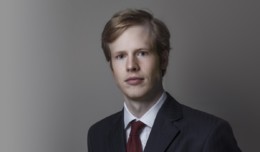Religion v Regulation – Do Facebook Posts About the “Wicked Act” of Homosexuality Bring the Profession into Disrepute?
In the recent case of R (Ngole) v University of Sheffield [2019] EWCA Civ 1127 the Court of Appeal considered the appropriateness of dismissing a student social worker for a series of religiously motivated posts on Facebook.
Mr Ngole responded to a story online about Kim Davis, the American registrar who refused to issue same sex marriage licenses. Mr Ngole commented – inter alia – that homosexuality was “a wicked act” and God “will also judge all those who indulged in all forms of wicked acts such as homosexuality”. This came to the University’s attention and ultimately the issue came before a Fitness to Practise (FTP) panel where Mr Ngole was dismissed. The University maintained that it was inappropriate for him to express any such views in public. It was not merely the manner or tone of his comments it objected to, but the public expression of those views at all. Following an unsuccessful internal appeal, Mr Ngole judicially reviewed this decision. At first instance the court rejected his challenge but the Court of Appeal reversed this decision.
In doing so the court stressed that maintenance of public confidence in the profession did justify restricting a professional’s right to freedom of expression, although what this may mean in practice will differ according to different professions and different factual contexts. For example, a public expression of a political belief may be appropriate for a barrister but inappropriate for a judge.
This restriction cannot extend to “prohibiting any statement that could be thought controversial or even to have political or moral overtones.” So a social worker could complain about under-funding in public without damaging the profession. However, doing so in an offensive manner may well do so. In short, this restriction
“cannot extend to preclude legitimate expression of views simply because many people might disagree with those views: that would indeed legitimise what in the United States has been described as a “heckler’s veto”. On the other hand, the legitimate aim of such regulation must extend so far as to seek to ensure that reasonable service users, of all kinds, perceive they will be treated with dignity and without discrimination.”
Looking at the facts of Mr Ngole’s case, the University had repeatedly criticised him for lacking insight. However, it had failed to appreciate that his apparent intransigence was an understandable reaction to its own – namely, that any expression of religious views on sexual morals in public was inappropriate. At no stage during the process had the University made it clear that the manner and language used to express his views was the problem. In this sense, the University had also lacked insight.
The University’s position before the court amounted to this, such religious views
“can never be expressed in circumstances where they might be traced back to the professional concerned. In practice, this would seem to mean expressed other than in the privacy of the home. And if that proposition holds true for Christians with traditional beliefs about the literal truth of the Bible, it must arise also in respect of many Muslims, Hindus, Buddhists and members of other faiths with similar teachings. In practice, if such were a proper interpretation of professional regulation supported by law, no such believing Christian would be secure in such a profession, unless they resolved never to express their views on this issue other than in private. Even then, what if a private expression of views was overheard and reported? The postings in question here were found following a positive internet search by the anonymous complainant. What if such statements had been revealed by a person who had attended a church service or Bible class?”
Such a position cannot be proportionate. Since the court could not determine if Mr Ngole would resist the possibility of tempering the expression of such views, the appropriate remedy was to remit the case to a new FTP panel.
Comment
There is an understandable temptation on regulators to enforce, in effect, an absolute prohibition on the expression of certain views in public – be they moral, sexual, political, religious or racial. As the Court of Appeal makes clear, the issue is more nuanced than that. Public confidence requires that reasonable service users will not be discriminated against. It does not require a form of professional censorship on certain views, no matter how they are expressed.
Categories: News | Newsflash


